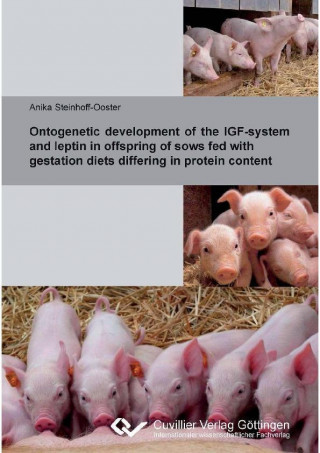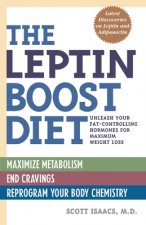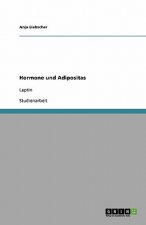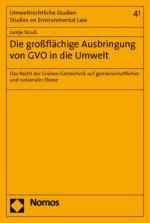
Kód: 12828257
Ontogenetic development of the IGF-system and leptin in offspring of sows fed with gestation diets differing in protein content
Autor Anika Steinhoff-Ooster
The aim of this dissertation was to characterize leptin and the different components of the IGF-system in offspring of sows fed with different protein contents throughout pregnancy and to ascertain long term consequences caused by ... celý popis
- Jazyk:
 Angličtina
Angličtina - Väzba: Brožovaná
- Počet strán: 110
Nakladateľ: Cuvillier Verlag, 2012
- Viac informácií o knihe

Mohlo by sa vám tiež páčiť
-

Leptin Boost Diet
16.54 € -3 % -

Leptin Diet for Women
13.27 € -

Eulalia!
8.77 € -7 % -

On the Rampage: Corporations Plundering the Global Village
58.82 € -

Pagan Every Day: Finding the Extraordinary in Our Ordinary Lives
29.51 € -

The Samurai Swordsman: Master of War
55.35 € -

Der beschriebene Tännling
10.10 € -

Bastigin Yerleri Tani Canakkale
15.92 € -

Les Paras FrancAis Du Jour J
25.63 € -

Hormone und Adipositas
44.01 € -

Il maestro del Giudizio universale
20.62 € -

Eclipse (Spanish Edition)
17.35 € -5 % -

El portal de Belén
21.13 € -4 % -

Die großflächige Ausbringung von GVO in die Umwelt
96.61 €
Darčekový poukaz: Radosť zaručená
- Darujte poukaz v ľubovoľnej hodnote, a my sa postaráme o zvyšok.
- Poukaz sa vzťahuje na všetky produkty v našej ponuke.
- Elektronický poukaz si vytlačíte z e-mailu a môžete ho ihneď darovať.
- Platnosť poukazu je 12 mesiacov od dátumu vystavenia.
Viac informácií o knihe Ontogenetic development of the IGF-system and leptin in offspring of sows fed with gestation diets differing in protein content
Nákupom získate 49 bodov
 Anotácia knihy
Anotácia knihy
The aim of this dissertation was to characterize leptin and the different components of the IGF-system in offspring of sows fed with different protein contents throughout pregnancy and to ascertain long term consequences caused by an inadequate nutritional environment in utero. German Landrace gilts (n=78) were fed gestation diets (~15.4 MJ ME/kg) of either low (LP, 6%; n=26), adequate (AP, 12%; n=26), or high (HP, 30%; n=24) protein content. For sampling at day 94 of gestation, 26 gilts with their fetuses were investigated. At parturition, the offspring of the remaining 52 gilts were cross fostered to nursing sows fed a standard lactation diet. Fetal and birth weight of all investigated offspring were recorded and classified into 2 different fetal body weight classes (Fbwc = or > 0.65 kg) or birth weight classes (Bbwc = or > 1.3 kg). In addition, the litter size of any gilt was classified into two groups (Lsgr = or > 12 piglets). Blood and liver samples from 306 piglets in total were collected. In detail, fetuses of day 94 of gestation (dpc), and piglets at their 1st, 28th and 188th day of life (dpn) were sampled. Blood samples were assayed for IGF-1, IGF-2 and leptin by ELISA and for IGF binding proteins via a quantitative, non-radioactive Western ligand blotting protocol established and optimized herein. Liver samples were assayed for IGF-1 receptor by use of ELISA. The concentrations of leptin in offspring were not affected by maternal diet over all postnatal days. With the exception of dpn 1, the IGF-1 concentrations remained unchanged in response to maternal dietary treatment. Piglets born to mothers fed the LP diet had decreased IGF-1 concentrations compared to piglets born to HP mothers (P < 0.05). Piglets of lower birth weight also showed lower IGF-1 concentrations; IGF-1 and the body weights on dpn 1 were positively correlated. For IGF-2, an association between its concentration and low fetal body weight was observed. In line with previous studies, nutrient restriction as modulator had more pronounced effects on the circulating IGF-1 concentrations than the ones of IGF-2. The concentrations of the IGFBPs were primarily effected by nutrition in utero at the early stages of development. IGFBP-1 was higher in HP fetuses compared to the other two diet groups on dpc 94. For neonatal piglets, IGF-1 and IGFBP-1 were negatively correlated; piglets from LP fed mothers had higher IGFBP-1 values; they also had lower concentrations of IGF-1 than AP and HP piglets. Piglets born to LP fed mothers had lower IGFBP-2 values on dpn 1 and dpn 28; for IGFBP-3 differences related to maternal feeding group were limited to dpn 1: HP piglets had higher IGFBP-3 concentrations than AP piglets. On none of the sampling days, differences between the diet groups were observed for liver IGF-1 receptor content. Neither maternal feeding group nor fetal body weight nor litter size nor sex apparently influenced IGF-1 receptor content on dpc 94 in liver, indicating that different protein diets in utero throughout the entire pregnancy might rather act at the level of the ligand than of the receptor, if the IGF-system is concerned at all. Nevertheless the results of this study show clearly, that all ascertained effects of modified protein diets during gestation were limited to prenatal and early postnatal life. Significant effects resulted predominantly from protein restriction in utero whereas protein excess exerted no or only few effects on all factors tested. Possibly the inadequate protein supply during gestation could largely be compensated during the suckling period and thereafter when feeding was homogeneous in all groups. The lack of persistent effects by maternal feeding on the endocrine systems indicates adaptive processes; moreover, carcass composition data do not support long lasting effects of subtle early endocrine changes.
 Parametre knihy
Parametre knihy
19.70 €
- Celý názov: Ontogenetic development of the IGF-system and leptin in offspring of sows fed with gestation diets differing in protein content
- Autor: Anika Steinhoff-Ooster
- Jazyk:
 Angličtina
Angličtina - Väzba: Brožovaná
- Počet strán: 110
- EAN: 9783954040612
- ISBN: 3954040611
- ID: 12828257
- Nakladateľ: Cuvillier Verlag
- Hmotnosť: 154 g
- Rozmery: 210 × 148 × 6 mm
- Dátum vydania: 26. March 2012
Obľúbené z iného súdka
-

Dune
13.06 € -

Haunting Adeline
30.84 € -

Berserk Deluxe Volume 2
52.49 € -

White Nights
3.46 € -26 % -

Powerless
12.45 € -4 % -

Atomic Habits
17.15 € -24 % -

Dune Messiah
9.08 € -19 % -

Berserk Deluxe Volume 3
53.20 € -

One Day
11.12 € -23 % -

Berserk Deluxe Volume 1
44.73 € -12 % -

Iron Flame
16.43 € -24 % -

Surrounded by Idiots
10.20 € -15 % -

Harry Potter and the Prisoner of Azkaban (Minalima Edition)
27.77 € -32 % -

Gravity Falls Journal 3
21.95 € -

Heaven Official's Blessing: Tian Guan Ci Fu (Novel) Vol. 1
21.95 € -

The Creative Act
24.20 € -12 % -

Dune
11.33 € -6 % -

Hunting Adeline
31.96 € -

A Little Life
17.66 € -

Children of Dune
8.88 € -21 % -

Heaven Official's Blessing: Tian Guan Ci Fu (Novel) Vol. 2
20.52 € -3 % -

Bungo Stray Dogs, Vol. 8 (light novel)
16.13 € -

Percy Jackson and the Olympians 5 Book Paperback Boxed Set
47.69 € -

Solo Leveling, Vol. 1
21.85 € -

The Prisoner's Throne
10.71 € -21 % -

Court of Thorns and Roses
9.28 € -22 % -

Cry Baby Coloring Book
10.82 € -4 % -

Fourth Wing
15 € -24 % -

Icebreaker
9.49 € -15 % -

Berserk Deluxe Volume 6
48.10 € -5 % -

Avatar, the Last Airbender: The Kyoshi Novels (Box Set)
27.47 € -33 % -

The 48 Laws of Power
26.44 € -3 % -

House of Leaves
23.38 € -3 % -

Twisted Lies
9.79 € -18 % -

Dune Messiah
12.66 € -12 % -

No Longer Human
16.94 € -

48 Laws Of Power
22.56 € -5 % -

Twisted Games
9.49 € -21 % -

Caraval Paperback Boxed Set
41.66 € -3 % -

Solo Leveling, Vol. 2
22.36 € -

Open Circuits
34.62 € -15 % -

Berserk Deluxe Volume 5
51.67 € -

Heaven Official's Blessing: Tian Guan Ci Fu (Novel) Vol. 3
16.94 € -18 % -

Berserk Deluxe Volume 4
46.87 € -8 % -

Court of Mist and Fury
9.39 € -21 % -

SOLO LEVELING V08
20.62 € -2 % -

English File Upper Intermediate Multipack A (4th)
22.15 € -

CHAINSAW MAN V14
11.33 € -13 % -

Before the Coffee Gets Cold
9.79 € -24 %
Osobný odber Bratislava a 2642 dalších
Copyright ©2008-24 najlacnejsie-knihy.sk Všetky práva vyhradenéSúkromieCookies



 21 miliónov titulov
21 miliónov titulov Vrátenie do mesiaca
Vrátenie do mesiaca 02/210 210 99 (8-15.30h)
02/210 210 99 (8-15.30h)